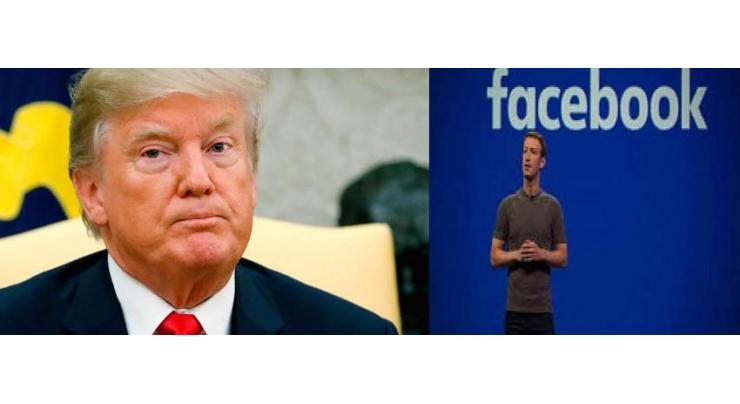
Psychometrics: How Facebook Data Helped Trump Find His Voters
Daniyal Sohail Published March 21, 2018 | 04:17 PM

It was one of hundreds of cute questionnaires that were shared widely on Facebook and other social media, like "Which Pokemon Are You?" and "What Are Your Most Used Words?" This one, an app called "thisismydigitallife
Washington, (UrduPoint / Pakistan Point News - 21st Mar, 2018 ) :It was one of hundreds of cute questionnaires that were shared widely on Facebook and other social media, like "Which Pokemon Are You?" and "What Are Your Most Used Words?" This one, an app called "thisismydigitallife", was a personality quiz, asking questions about how outgoing a person is, how vengeful one can be, whether one finishes projects, worries a lot, likes art, or is talkative.
About 320,000 people took the quiz, designed by a man named Alexsandr Kogan. Kogan was contracted to do it by a company called Cambridge Analytica, founded by US Republican supporters including Steve Bannon, who would become the strategist for Donald Trump.
Because Kogan's app was circulated via Facebook, it reaped far more than just the information on those who took the test. At the time, in 2015, such apps could scrape up all the personal details of not only the quiz-taker, but all their Facebook friends.
That ultimately became a horde of data on some 50 million Facebook users -- their personal information, their likes, their places, their pictures, and their networks. Marketers use such information to pitch cars, clothes, and vacations with targeted ads.
It was used in earlier elections by candidates to identify potential supporters. But for Kogan and Cambridge it was a much bigger goldmine. They used it for psychological profiling of US voters, creating a powerful database that helped carry Trump to victory in the 2016 presidential election.
The data let the Trump campaign know more than perhaps anyone has ever known about Facebook users, creating targeted ads and messaging that could play on their individual biases, fears and loves -- effectively creating a bond between them and the candidate.
Recent Stories

UHS to issue MBBS degrees within three months after final result

Aiman Khan granted UAE Golden Visa

PSX achieves significant milestone, surpasses 72,000 mark

Pak Vs NZ T20I: Orphaned children extended special invitation to watch match

Finance Minister lauds UNDP’s unwavering support during floods

President Raisi leaves for Iran from Karachi

Currency Rate In Pakistan - Dollar, Euro, Pound, Riyal Rates On 24 April 2024

Today Gold Rate in Pakistan 24 April 2024

Punjab CM inaugurates Pakistan’s first Virtual Women Police Station

Dutch model Donny Roelvink embraces Islam

Experts raise concerns over introduction of 10-stick packs

Iranian president arrives in Karachi
More Stories From Technology
-

Punjab CM inaugurates Pakistan’s first Virtual Women Police Station
17 hours ago -

Pro Tips: How to Capture Stunning Portraits with the Aura Light Portrait of vivo V30 5G
2 days ago -

Itel celebrates launch of S24—a new brand identity
3 days ago -

Realme C53 Price Slash: High-Tech Meets High Style at New Low Price!
4 days ago -

Take Charge, Live Free: Empower Your Life with Infinix NOTE 40 Series
6 days ago -

PTA Undertakes Consultation with All Pakistan Network Association (APNA) on Proposed Class Value Add ..
6 days ago
-

Vivo V30 5G: The Perfect Blend of Enhanced Photography and Premium Design
7 days ago -
PITB's Regional Plan 9 invites applications for its newly launched incubation centers in Rawalpindi, ..
8 days ago -

Pakistan calls for enhanced information integrity on digital platforms
8 days ago -

Infinix NOTE 40 Series vs. the Competition: Why It Stands Out
9 days ago -

"Unlock Exceptional Value: The New realme Note 50 with Extended Warranty Now Available in Pakistan!� ..
9 days ago -

Google unveils new AI chips, arm-based processor for data centers
15 days ago










